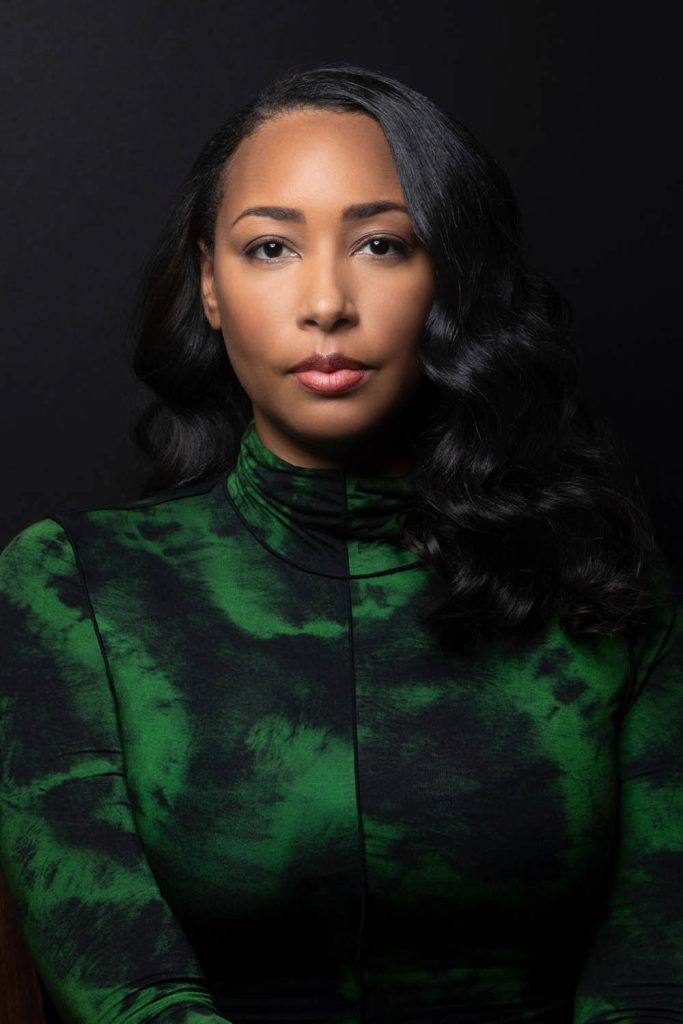“There was more than one way to be lost. More than one way to be saved. While my mother had saved me from the waves and gave me breath, my father had tried to save me only by suffocation. With ever increasing strictures, with incense smoke, with fire. Both had wanted better for me, but only one of them would protect me in the end.”
Safiya Sinclair, How to Say Babylon
Released in 2023, How to Say Babylon — winner of the National Book Critics Circle Award in Autobiography and the OCM Bocas Prize for Caribbean Literature, among many other commendations — gives an honest, raw, intimate look at Safiya Sinclair’s journey from a conservative Rastafarian household in Jamaica, to a Black woman navigating the world with pride and courage.
As we connect in the heart of Port of Spain during the 2024 Bocas Lit Fest, she reflects on the challenges she faced not only in finding her own voice and claiming her own narrative, but on how her life has shaped her writing — and how her writing has, in turn, shaped her life.
Born in Montego Bay in 1984, Sinclair was raised in a strict Rastafarian home where, as she recounts in her book, her father was steadfastly devoted to Rastafari — “with a strict binary of rules by which he measured everything … what was righteous and blessed and who was a heathen.”
Rastafarianism, one of the world’s youngest religions, emerged in 1930s Jamaica — inspired by growing Afro-centric consciousness and by the teachings of inimitable Jamaican activist Marcus Garvey. Rastas fall into one of the various denominations or subsects — “Mansions of Rastafari” — like the Nyahbinghi Order, Bobo Ashanti, or Twelve Tribes of Israel.
These beliefs governed Sinclair’s life — from her dress to her diet, speech, actions, and even her thoughts — making her “petrified of becoming unclean.” A core tenet of Rastafari is the delegitimisation of “Babylon” — any manifestation of oppression and exploitation that Africans faced under colonialism and its legacies — and, conversely, the revitalisation of African culture and sensibilities in the African diaspora.
It is this very concept of Babylon “that shaped so much of my life growing up,” Sinclair recounts. “You’re either with us … or you’re Babylon.” As not only the head of the household but the spiritual guide, her father considered his role as the chief defender of the family against Babylon.
It was this constant struggle of balancing the weight of her religious inheritance against the deep and burgeoning fear of being captured in Babylon’s grips that shaped Sinclair’s formative years and inspired the fitting title of her memoir.
Now an adult, many years and miles removed from that childhood, what does Sinclair still carry with her in the world? “I remain really grateful for a family that instilled in us a militant sense of Black pride,” she says. “It really gave my siblings and I the tools we needed to walk through the world, confident in our Blackness.”
Upon leaving Jamaica and migrating to the United States (she completed a PhD in literature and creative writing from the University of Southern California and is now an associate professor of creative writing at Arizona State University), she developed a new understanding of and appreciation for the “armour” — and pride — that she had been given.
Sinclair navigates the world now with what she describes as a “decolonial sensibility”, where she uses the “coloniser’s language” in her poetry and prose to create a rippling, indelible impact.
“I felt as though my life didn’t belong to me. I wanted to choose for myself what woman I would become next”
Many people unfamiliar with Rastafarianism are unaware of its contentious history within Jamaican society. Prior to its integration into popular culture — through the music of Bob Marley and others — Rastafarians did not only struggle to gain legitimacy but were considered outcasts, and deliberately marginalised from mainstream Jamaican society.
Sinclair attended a private, majority White high school — St James College in Montego Bay, where she was not only exposed to a world outside of her strict family home, but came face to face with the whisperings of Babylon. She recalls feeling “immediately outcast, not only by the White girls, but by my Black Jamaican teachers who did not welcome me because I was Rastafari”.
At 11 years old, this new school incited a creeping shame, a newfound shyness and discontent, causing her to feel as though “the sunlight that was within me went out little by little”.
“As Black women, there is so much history and identity wrapped up in our hair,” she says, remembering the moment she decided at 19 to have her locs shorn. The decision came from the heaviness of the emotional weight her hair held after many years of tussling with Rastafari — along with the consistent teasing and taunting.
It was a symbolic break from Rastafari — and in many ways, her father. “I felt as though my life didn’t belong to me. I wanted to choose for myself what woman I would become next,” she remembers.
Seeking comfort during those arduous teenage years, her passion for language and writing began to germinate. How To Say Babylon — listed as one of the best books of 2023 by The New York Times, Time, The Washington Post, Vulture, Shelf Awareness, Goodreads, Esquire, The Atlantic, NPR, and Barack Obama — is a testament to that passion and talent.
Filled with delicious, poetic prose, this insight into a difficult childhood — beatings, punishment, and retribution — becomes a gripping tale of overcoming. She initially began writing the book in 2013, and describes the process as an unearthing — “a digging up in the roots of that old garden, hoping to make something bloom”.
Through it, she found common ground with her parents — similarities even she did not realise existed until then. “With my mother, I could see that our love of words, our love of language is what binds us,” she says. The fact that she blossomed into a poet was due in no small part to her mother’s influence.
Although it is clear in the book that her relationship with her father growing up was tenuous and difficult, she says, “I’m that rebellious and fiery because of him.” Her journey as an adult, then, has been about striking the beautiful balance — finding the sweet spot — between her mother’s nurturing softness and her father’s incandescent fire.
Her journey has been about striking the beautiful balance between her mother’s nurturing softness and her father’s incandescent fire
The pages of her book are not interlaced with anger, resentment, or rooted in spite. They simply recount her life’s experiences. She recalls the best advice she received was from a professor, who encouraged her to “write this book from a place of safety”.
When she returned home years later, her experience doing a poetry reading in front of an audience — including her father — was her catharsis. Describing that moment and the embrace from him that followed as a “release”, she finally found her place of safety from which she could begin penning her story.
Sinclair says she didn’t just write this book for herself, but for people to better understand her country. She hopes to shine light on what has long been a persecuted Rastafarian minority, remembering that she and her siblings were some of the first Rasta children to integrate public schools in Jamaica.
“My father didn’t raise no weak heart,” she continues. Her courage and self-belief have become part of her legacy, diversifying the portrait of Caribbean womanhood, and imparting her own healing fire through every word.
With How to Say Babylon, Safiya Sinclair has given Caribbean women the permission to authentically examine their pasts and determine their futures, asserting themselves confidently in a world not originally designed for them.
In sharing her story, she has crafted a new framework for our women to earnestly believe that their dreams can be limitless, and that power is theirs to harness.

